What The New Port Order Will Enthrone In Maritime Industry-Bello, NSC Boss
-
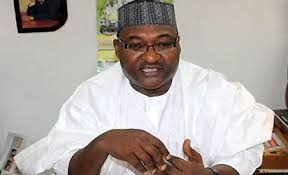
Barr. Hassan Bello- Executive Secretary and Chief Executive Officer (CEO) of the Nigerian Shippers’ Council (NSC). What is your right as a Port user, Service provider or Consumer of Shipping services under the emerging New Port Order (NPO) being mid-wifed by the Nigerian Shippers’ Council (NSC)?
- What are the roles of journalists in the new system?
Answers to these questions are contained in this interview with Barr. Hassan Bello, the Executive Secretary and Chief Executive Officer (CEO) of the Nigerian Shippers’ Council (NSC).
He speaks on what the foreign shipping firms and the terminal operators actually wanted to achieve by going to court against the Council. What are they now doing behind the court room show-off? Bello shares the secrets and more in this interview with the MMS Plus Weekly. He shared his thoughts with Kingsley Anaroke, Emeka Chukwuaku and Ifeoma Iloh. Excerpts.
Developments in the industry have shown that Nigeria needs Anti-trust legislation. Do you subscribe to this idea?
Yes, I subscribe to the idea of a comprehensive legislation on anti-trust. The whole idea is to provide the right atmosphere for competition, which is the hallmark of operation in the private sector, especially in our industry; it is imperative that we have anti-monopolistic laws that will encourage competition. Competition will give consumers of Shipping services choices and encourages efficiency, especially for example, inter and intra-terminal competition. And when you have competing operators you will certainly have efficiency at play among the operators.
This will also drive the cost of doing business down. Even though we have anti-monopoly provisions in various laws, it is important we have a comprehensive one. I must however, point out that the whole essence of private sector participation, that is, the concession of the port is for efficiency and competition.
How would Nigerian Shippers’ Council (NSC) lead the call for a comprehensive Maritime Policy having observed that there are policies scattered in different documents?
We have maritime policies but these policies are spelt out by the legislature and indeed the Judiciary. If you collate all the pronouncements made over time by government you will find a maritime policy. Over the last ten years, Nigeria’s maritime policy has been multi-modalism with the private sector as the engine room to drive the maritime industry. Modern infrastructure, competition, efficiency, these I believe are what we have. There is nothing wrong in bringing together a comprehensive maritime policy. As it is now, it is amorphous. But NSC is the driver of the maritime policies, we are the one (parastatal) that has the bird’s eye view, looking at the various segments of things. Is it the terminals? Are we talking about the port or talking about the fees? Or, are we talking about the cargo? Are we talking about the business, capital, employment or investment? Again is infrastructure, legal frame-work, policy framework; all these are things that the NSC will look at holistically and come together with other stakeholders to aggregate these policies. This we will do now that it has become an issue.
We have been made to understand that beyond economic regulation, there are social and technical regulations. So how has the council been able to handle its economic regulations responsibility?
It is being quite challenging and rewarding. Challenging in the sense that we have always made the point that there should be economic regulation even before the port concession. The private sector had asked if there was an economic regulator, which would have set the rules and guidelines of operations. Economic regulations are not advisory. Even though the NSC joined after the dream had berthed, it has gotten acceptance. It is for you to get recognition and acceptance for the people you set to regulate. First of all, the Federal Government must be commended for having that courage to have an economic regulator. The meaning of this is that government is conscious of the danger that the vacuum has created and it is trying to rectify it. And it is never too late and this we have done now. Since the NSC was appointed we ceased to have impunity anymore. Before now you found increase in prices of shipping services on monthly basis. Now, it has come to the knowledge of all the parties that there is an economic regulator.
Secondly, the volume of work in NSC has more than trippled because the economic regulations represent all the segments. We have had consultations with the service providers and the consumers of services; we have complaints, unit dealing with complaints; global shippers’ forum working with the International Maritime Organization (IMO) on facilitation; and so many other activities. So, I think it is gratifying to know that the NSC having been appointed by the government as the economic regulator and the way the Council adopted its enforcement brought about the buy-in from the people.
There are challenges no doubt, but these are pioneering problems. By the time the aggregate result of NSC activities begins to manifest then you will see that its neutrality, independence, democratic principles are more recognized and people will be more dependent on NSC as far as the port sector is concerned.
Beside the challenges in form of the litigation from terminal operators and shipping companies, have they been any other form of opposition against the economic regulatory status of the council?
I don’t think we have opposition as such, the shipping companies for example, up till now, we are negotiating despite the fact that we are in court. It is always like that when seeking interpretation to ensure that issues are trashed. What we see from the shipping companies is simply initial resistance which is normal, so by the time things become apparent they will see that the regulation is inevitable.
The fear is that by the end of May 2015, all the pending bills at the National Assembly will be set aside to begin afresh in the 8th National Assembly, looking at the challenge you have to get a backing legislation for the economic regulation, what are you going to do?
There is an Executive Bill for the establishment of National Transport Commission (NTC) at the National Assembly and is being worked out with the ministry of transport, the Attorney General, Bureau of Public Enterprises (BPE) and other agencies, including the NSC. That legislation is a comprehensive legislation that provides for economic regulation and it is still being worked out by the executive and it is hoped that it will be passed.
I am talking about the coming to an end of a legislative session without the NTC legislation?
Even now, there are adequate laws to take care of what is happening. The Act establishing the NSC has given the Council advisory and regulatory powers. The pronouncement and the letter of appointment by the president is a source of laws which qualifies the NSC to also carry out the regulatory function pending the passage of the comprehensive law that we are waiting.
The issue of transit park, none has really taken off as planned. What is the problem, is it finance or logistics?
The issue of transit park, our own is to promote and we have promoted it not only in Nigeria but internationally. It is infrastructure that will be done on Private Public Partnership (PPP) basis, which means the NSC will do and has been able to do is to find one or two strategic places where it is promoting this. We have already met with the Kogi State government. Lokoja has been chosen as a pioneer place and NSC is trying to woo investors including the Nigerian National Petroleum Corporation (NNPC), so that they can have their retail outlets in these structures. If we have one or two, I am sure they will be replicated. We have to use them as standards but the most important thing is that it is a PPP project. The government will not participate but it will provide the enabling environment for investors to come and participate.
We have one in Lokoja, Enugu etc. What is the extent of that one?
That of Enugu is at the preliminary stage. The NSC has visited the site and is in discussion with the Enugu State government and we are aware that by the time the political activities are concluded we will make another visit. Another important site is that of Mararaba, Jos. The state government here is also very enthusiastic about it.
The one in Trade fair complex, Lagos, what is happening there?
The one in trade fair is a lease. It has been leased to a private sector already and we have a memorandum of Understanding (MoU) with them. It is a consortium kind of a thing with so many facilities. If we are able to secure that and make it a truck transit park and an Inland Container Depot (ICD) or an off-dock terminal that will be very good.
Recently, you commissioned some set of uniform men as taskforce to help decongest the port access roads. But we still see the gridlock, so what is the level of planning for a permanent solution?
There are so many reasons we have congestion on the roads. The simple thing is that nothing is planned along the Apapa access roads. And an automation would have simply solved a lot of problems. There should be electronics gates, there should be marshalling yard, and there should be parking bay and many other facilities. All these things should be electronically operated in the sense that trucks should not be on the road until they are needed. That is one. Two, the infrastructure have reached their capacities, including the ports. The ports we have in Apapa have been overstretched beyond their capacity. That is the truth and so also the roads. That is because these are city ports. We need new ports deep seaports, which the federal government is now promoting with the private sector.
The NSC is working with a taskforce called Federal Roads Committee on Surveillance and Against Road Abuse (FERCSARA). It is a palliative to at least ease the traffic. And you have seen the federal government repairing the roads and that has really gone a long way to provide some ease. But I think a more comprehensive plan should be put in place.
Any New Year message for port users?
For shippers and those who provide or use services, the message from NSC is that there is a new port order coming. NSC is poised to provide a comprehensive port order. We are working with a world-class consultant to do this. This will include strengthening the economic contributions of the whole maritime industry. This will include increasing competition, reduction of cost, presupposing that we are going to attract cargoes from neighbouring countries. We have to have efficient ports, and the NSC is working assiduously to see that all the representatives or stakeholders can come together and provide a comprehensive port order which is international, just, efficient and attractive.
We hope that the NSC will handle the traffic situation in the comprehensive port order. I use this opportunity to call on all the stakeholders to cooperate with NSC to berth this new port order where every stakeholder will have a part set out statutorily for the benefit of the Nigerian economy
What is the government policy on the international border trade, since of recent the Nigerian international trade performance through the borders have reached a very substantial percentage?
They are mostly informal and constitute leakage in revenue and so on and so forth but the Nigerian Shippers’ Council together with the US and the Nigeria Customs Service have started operating border information and centers whereby the informal trade will be formalized. We give our traders information about our neighbouring countries. The beauty is that it enhances the trade itself but most importantly it is to formalize this trade. If you formalize it you get more revenue. It is captured as information. As you said, the ECOWAS is trying to integrate the region through not only in monetary terms but also in trade. Trade is the underlined word here.
Integration of ECOWAS through transportation and other things are all geared towards trade facilitation in the region. Not only through the borders but even through the sea. Nigerian Shippers’ Council and NEXIM Bank are promoting sea levy synergy, because sometimes you have to import or export certain things. If for example our traders want to go to Cape Verde, they have to export their products to Europe, then ship them again to Cape Verde. So there is a lot of integration to be made. I think the study has been done by NEXIM Bank with Nigerian Shippers’ Council; there has been some equity contributions in bank and the Minister of Finance is looking towards that, where we could have small vessels going to these countries. The same thing with land borders. Land borders are porous, a lot of smuggling going on. Now we are making our ports more competitive so as to get more cargoes. A lot of cargoes at the neighbouring ports are Nigerian cargoes, and they are received at other ports. A more radical approach to curb this trend may be adopted. I think our mandate is to make our port efficient, competitive, so that the shipper will have no options but to patronize us.
What will Nigerian Shippers’ Council do about cost of transporting cargoes from the port to elsewhere in the country?
Cost is the underlined thing, even now the truckers cannot increase the cost of carrying container from here to say Kano without recourse to Nigerian Shippers’ Council. We have negotiated with Association of Maritime Truck Owners (AMATO) and other Truckers’ association to give us the cost of operation, when we look at them, we will find a common ground of fixing the cost. Comparative cost is very important. Example is now that we have reduction in oil pump price, people who depend on that as a cost will have to come to terms and renegotiate. We are aware that the railways now are being used to transport containers and we have got complaints about the cost of carrying containers, we are going to look at it. We are aware of that.
With the added responsibility as economic regulator, has the government increased your funds and how do you overcome red-tapism in carrying out your duties
I think the government has a lot in its plate right now. We have made a presentation for funding. Nigerian Shippers Council needs to be creative, there are always sources of funding out there without increasing the cost of bills. That’s why it is critical. You don’t have to depend on government for subventions because that is even counting against your independence, and making your predictions unpredictable because of how these things are released, like now our funds are released quarterly but up till now the funds for the last quarter, have not been released to NSC and this does not make for planning that is why it is good to be creative and this is one of the things you expect from the Nigerian Shippers’ Council. Creating ways of funding without compromising the independence of the regulator, that is a very important issue and I will like the press to come in, suggest ways of funding. The real funding of the NSC is much because of the vast amount of work they do, but how to go about that, you have to be creative. We have a committee in the Shippers Council cracking their heads on how to go about this. To answer your question on red-tape, there is red-tapism everywhere, you should not allow the red-tapism to deter you, you can escape, how you escape the red-tapism is what makes you ready to move on.
We have had situations where some people do things without the knowledge of the Ministry of transport, they did not mind because success was achieved. Sometimes it is more or less a procedure, procedures are good especially when it comes to funding. We service the private sector, private sector will not have the patient for red-tapism, after all the work has been given to us, so why do we need to go back, we have been given the mandate, that’s what people call delegation of authority and we are going to use that too.
Is the concession agreement making your job difficult or what aspect of it do you find uncomfortable?
The concession agreement has been there for about eight years now and eight years is too long a time to have concession binding, there must be changes. Even the operators are clamoring for the review of this concession agreement. Even in that agreement I think there is a provision for a periodic review. The Federal Ministry of Transport has set up a committee made up of NPA, the concessionaires themselves and the Nigerian Shippers’ Council and they are to review this. What is most important for us to know is that the agreement itself, right from the time it was signed made provision for the appointment of economic regulator while this was not done maybe because we are in a hurry to have things done, sometimes we throw the bathwater with the baby, but the most important thing is that there is a provision for an economic regulation in the concession agreement, that is why the saying goes “better late than never.” The review will take care of new developments; so many things have happened in eight years. We look at the mistakes that have been made so that we correct them.
The aspect of the review not favourable are many. The capacity of the NSC is being improved, we have many members of staff now than we have had in the last ten years or so. We have to up our capacity. It has been repeated over and over again that it is not boring to say that you have to be more educated than the people you are regulating. We have to know the regulation methods, port operations, logistics and many other aspects, so that we know to administer the regulations well. Moreover, some people are saying that NSC should have annexes in many places to be able to regulate well, but Central Bank of Nigeria (CBN) does not have offices in every bank, so we don’t need offices in these areas, we can do our regulations, information and in the concessions agreement, the terminal operators, the shipping companies must submit information to their regulator and this is our next step so we don’t really need physical presence to regulate but if that becomes necessary then we will oblige it.



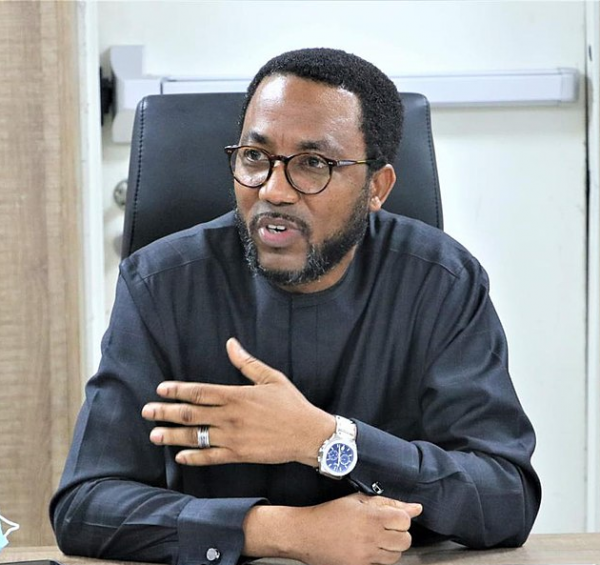
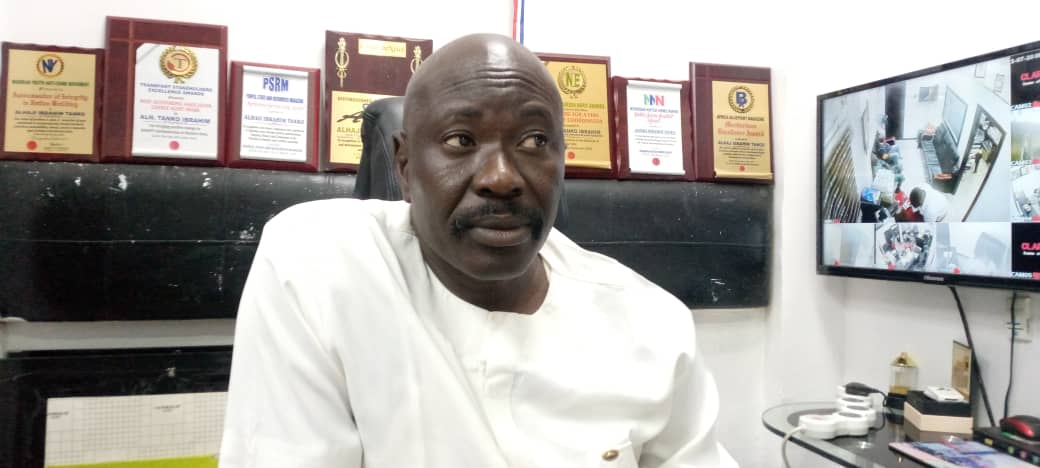
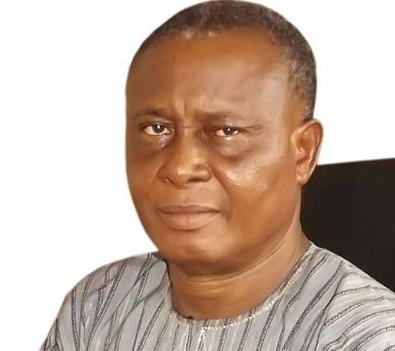
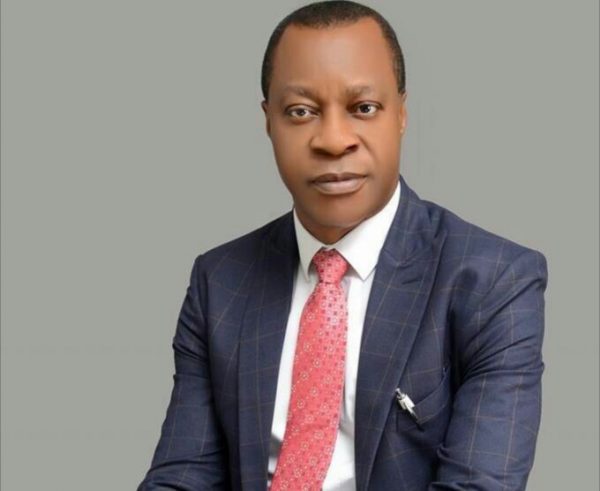
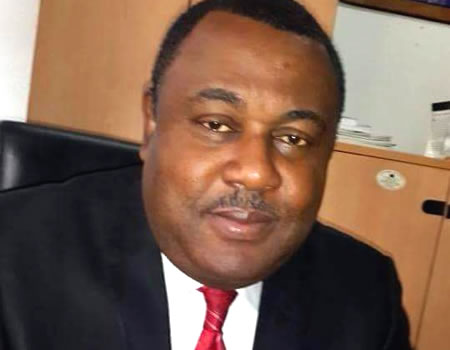
One Comment